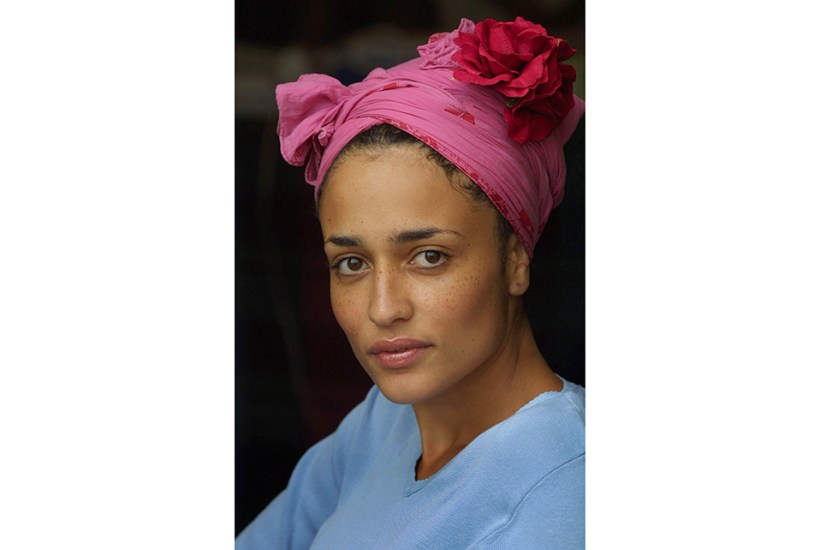It is very possible that Peter Kemp is the best-read man in Britain. Certainly, as the Sunday Times’s chief literary critic for goodness knows how many years, he has read and opined upon more works of new fiction than most. His is either a dream job or an absolute nightmare, depending on how you feel about the state of the novel. A Sisphyean task? A Herculean labour? Or just a colossal waste of time? All those keen debuts, all that second-rate dross, all those egos demanding attention: Kemp has bravely buckled up, knuckled down and dutifully banged out 800-plus words, week in, week out, for longer than most of us have been able to tell the difference between a roman-fleuve and a roman-à-clef. Retroland is an intriguing compilation of his unstinting efforts, shaped into a kind of argument.
The argument, in summary, is that fiction in English since the 1970s has displayed ‘a widespread and diverse enthralment with the past’. Kemp divides this alleged preoccupation with the past into four main categories: an ‘engrossment’ with the political past, in particular the end of the British Empire; an engagement with the personal past, relating to childhood trauma and hidden lives; an obsession with historical fiction as a genre category; and the overwhelming presence of the literary past, leading to various kinds of sequels, prequels, reworkings and imitations.
This is an interesting idea, or set of ideas, but the insights are not fully developed and are anyway rather self-contradictory and limiting, and the vast task of lumping them together isn’t entirely convincing. ‘But, wherever they originated from or came to be located, novelists have had far more in common than separates them.’ Really? Do all – I don’t know – reviewers for Sunday newspapers have more in common than separates them? At the very edges of Kemp’s account, you do get glimpses of genuine outliers – Kamala Markandaya, the much-overlooked Buchi Emecheta, David Cook, Paul Kingsnorth – but there’s really nothing remotely odd, experimental or unusual about the works or the authors discussed, and the book essentially amounts to a survey of corporate publishing’s big-hitters over the past half century. Which is not unuseful.
But it is Kemp’s rather withering assessments that really make the book worth reading. The opposite of a show-off stylist, he has the reassuringly calm manner of the weary schoolmaster toiling over the homework of the lower sixth, occasionally despairing and disdainful but nonetheless keen to offer encouragement and to urge them on to better things.
Thus, well done to Vikram Seth for A Suitable Boy (1983), ‘a prodigious feat of naturalistic fiction which stands as one of the most remarkable late-20th century novels’. Congratulations also to Ian McEwan and Robert Harris for their consistent performance over many years. And honourable mentions to the Oxford don Harry Sidebottom for his ‘full-blooded’ Warrior of Rome series and to Timothy Mo for ‘exceptional knowledgeability combined with imaginative force, cultural breadth, political acumen, prose crackling with energy and an acutely keen ear for speech’.
Some of the more flamboyant students get the harshest treatment. Salman Rushdie in particular does not fare well: he is ‘curiously inept at telling stories’, guilty of ‘artistic repetitiveness’ and ‘flashy emptiness’, his work ‘emotionally wan and psychologically colourless’, and seemingly ‘oblivious to a major fault line running through his work: the mismatch between his subject matter and his style’. Could do better.
There are a surprising number of summary dismissals, which might sound all right in a short fiction round-up produced to deadline but which seem rather ill-considered in the cold light of day and collected for the sake of posterity. Rohinton Mistry is ‘ponderous’, Sophie Hannah is guilty of ‘slackness’ and ‘meanderings’, while Margaret Drabble’s ‘amorphous’ trilogy, The Radiant Way (1987), A Natural Curiosity (1989) and The Gates of Ivory (1991) demonstrates ‘the unbeneficial pull that the theme of child abuse could exert on an author’s imagination’. Pat Barker has been unable to ‘demob her creativity’, while everyone’s favourite, Hilary Mantel, struggles with ‘over-copious historic documentation’, and Zadie Smith tends to meander ‘as her whimsy takes her’.
Such remarks do at least invite discussion and debate. Elsewhere, there’s quite a lot of low-level bookchat. Sarah Waters has a ‘flair for involving you with her characters by making them engrossingly believable and complex’. Oh yes, those believable and complex characters – I was saying exactly the same thing to my book group over a glass of Pinot Grigio the other day. And Julian Barnes ‘has always had a penchant for writing fiction much indebted to actuality’. I know, hasn’t he just? Who’d have thought?
All good knockabout stuff, until the frankly utterly depressing conclusion: ‘The overwhelming message from modern fiction that looks forward is that there’s not much to look forward to.’ On the evidence of Retroland, the most radical thing a writer could do is to write something funny and cheering, about now, and fast.
Got something to add? Join the discussion and comment below.
Get 10 issues for just $10
Subscribe to The Spectator Australia today for the next 10 magazine issues, plus full online access, for just $10.
You might disagree with half of it, but you’ll enjoy reading all of it. Try your first month for free, then just $2 a week for the remainder of your first year.








Comments
Don't miss out
Join the conversation with other Spectator Australia readers. Subscribe to leave a comment.
SUBSCRIBEAlready a subscriber? Log in